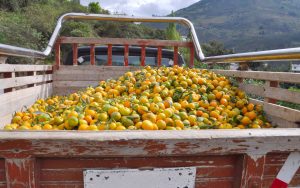How much effort and and money goes into feeding the worlds 7.7 billion people? The food industry globally is an 8 trillion dollar business (about 10% of the Global Gross Domestic Product) , but this doesn’t nearly take into account everything that goes into the global food value chain, for example fuel, fertilizer, equipment, irrigation, transportation, storage, non-food consumables, preparation, etc. How is it that with the population going up by about 150,000 daily we still manage to feed everyone?
The predictions in the 1960s that global famine would lead to population collapse and a “silent spring” never happened. This is partially due to the massive, and I mean truly massive increases in global food production. You see, we as human beings have learned better and better ways of feeding ourselves. To be more accurate, we should say due to the work of some diligent scientists who developed high yield drought resistant strains of wheat and corn, the food supply has kept pace with population growth saving the lives of billions. However there is more to the story. (for the amazing inspiring Youtube Video on this)
In 1864 a kind hearted farmer named Moses Carver took his only horse and rode out on a cold Missouri night to meet a murderous band of confederate bushwhackers. Why? To trade his prize horse as the ransom for the life of a young slave boy name George Washington who had been kidnaped along with his mother. Horseless, he walked home with the nearly frozen infant tucked inside his jacket.
Moses Carver gave the infant George his name and he and his wife Susan raised George as their son. They homeschooled him and later sent him to high school and college. George Washington Carver, a committed christian, went on to develop an amazing array of agricultural products and advancements particularly with peanuts, soybeans and sweet potatoes. He is credited with saving the economy of the South and serves as a shining example of a Christian leadership in education and the marketplace.
George Washington Carver was a brilliant student at Iowa State university where he had a powerful influence on the life of the child of one of his professors. This young man named Henry Wallace was inspired by Carver who would take him along as his sidekick on botanical adventures. Inspired by Carver, Wallace began his own botanical experiments by age 10. Wallace developed expertise in hybridization and went on to become the U.S. Secretary of Agriculture and then Vice President of the United States under FDR.
Wallace used his influence as Vice President to create a joint project agriculture research station in Mexico for the study of hybridization of grain for arid climates. For this project he hired a man brilliant young scientist named Norman Ernest Borlaug. Borlaug is often called the father of the Green Revolution because his hybridized wheat and corn doubled wheat production in arid climates and brought food security to billions. His efforts are credited with saving over 2 billion lives from famine. For his efforts Borlaug was awarded numerous honors, including the Nobel Peace Prize, the Congressional Gold Medal and thePresidential Medal of Freedom.
So you see a kind hearted Missouri farmer traded his prize horse for the life of little slave boy and the lives of 2 billion people. A pretty good deal – Selah.








